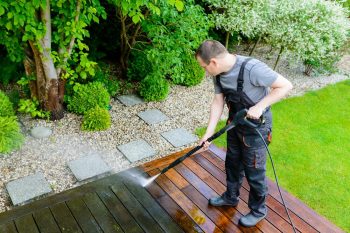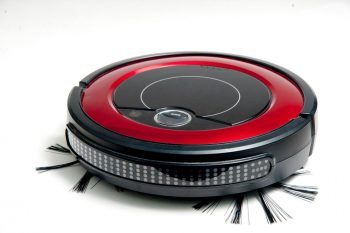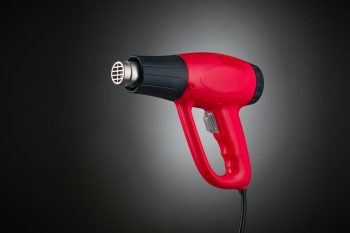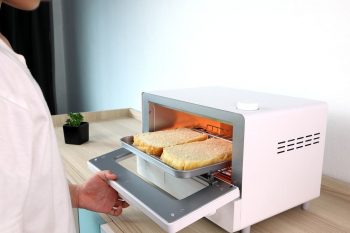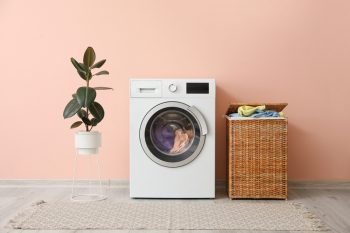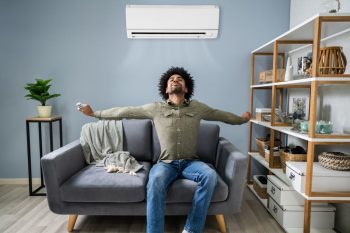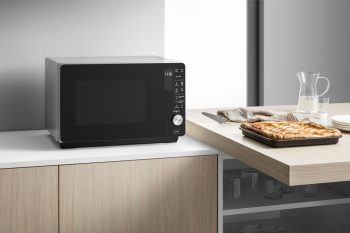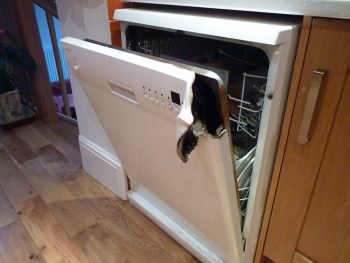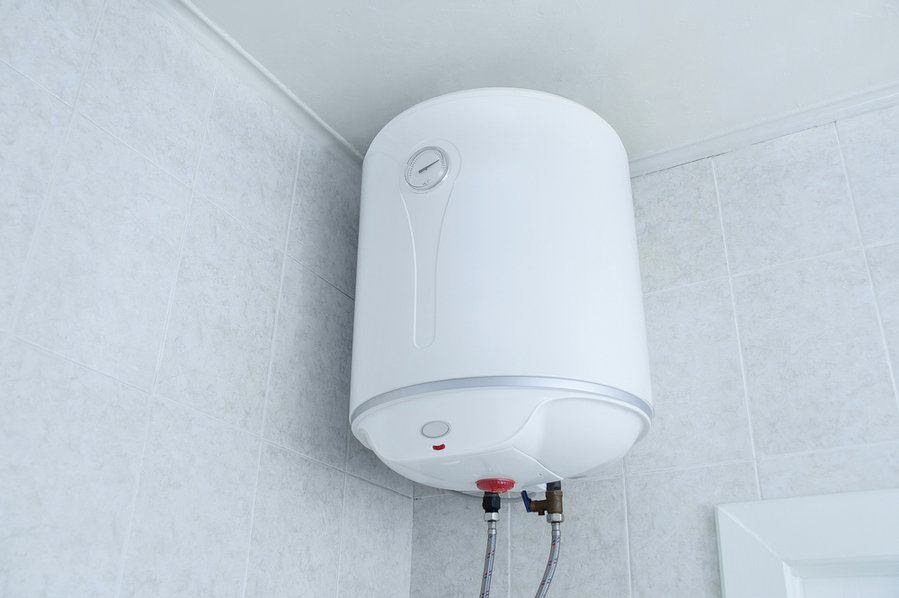
If you are like most people, you probably do not give much thought to your water heater until something goes wrong.
You should know that water heaters are essential appliances in any home or building, providing hot water for showers, washing dishes, and other tasks.
Therefore, they must be taken good care of. So, have you ever noticed strange noises coming from your water heater?
While some sounds may be normal, others could indicate a problem that needs to be addressed.
This article will educate you about some common water heater sounds and their causes so that you can promptly identify and address the issue.
Like any other electrical appliance, water heaters also make sounds when they are in use or when something is wrong.
Unusual and loud sounds typically indicate a problem you should address as soon as you can.
Some common sounds that water heaters make are listed below:
- Popping or crackling sounds,
- Hissing or whistling sounds,
- Banging or knocking sounds,
- Whirring and vibrating sounds,
- Gurgling sounds,
- Rumbling sounds,
- Screeching sounds,
- Grinding and clucking sounds,
- Hums or buzzes,
- The noise of the water heater turning on.
Some of the problems that these sounds indicate can be fixed by you, while others may require professional assistance.
Make timely repairs and replacements to keep your water heater functioning effectively.
In this article, we will explore some of the most common water heater sounds, what causes them, and what you can do to fix the issue.
You will also learn some helpful tips about maintaining your water heater.
Common Water Heater Sounds and Their Fixes
If you are experiencing water heater noise and looking for ways to fix it, you will find this article helpful.
We have explained ten common water heater sounds along with the reasons that cause them. If your water heater makes any of these sounds, you can fix them by practicing the suggested solution.
1. Popping or Crackling Sounds
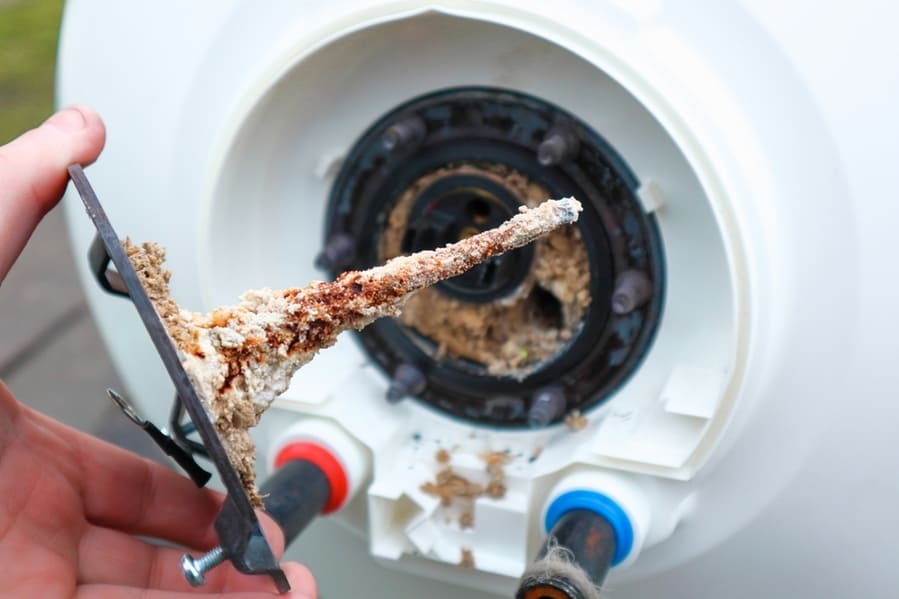
If you hear popping or cracking sounds from your water heater, it may be due to mineral buildup in the tank. Over time, minerals from the water can accumulate in the tank, trapping bubbles that can cause these sounds.
These steam bubbles later pop when the temperature gets too hot, making popping sounds. The sediment buildup can also cause your water heater to work less efficiently, leading to higher energy bills and a shorter lifespan for the application.
Solution: To fix this problem, drain and flush the tank to remove the sediment buildup. You can do this yourself by following the manufacturer’s instructions or hiring a professional plumber to do it for you.
2. Hissing or Whistling Sounds
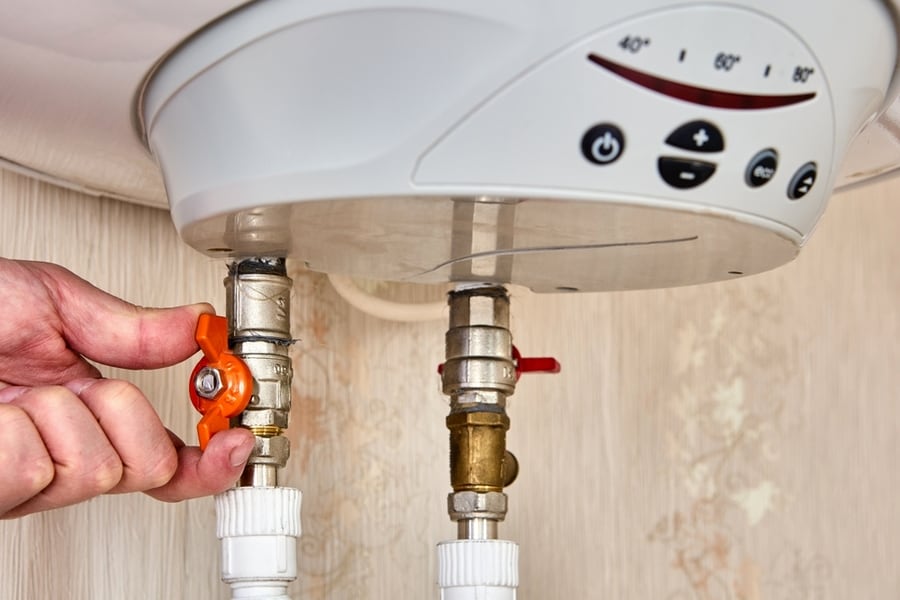
The hissing or whistling sounds from your water heater result from malfunctioning valves. The water heater has temperature and pressure relief valves. They are designed to release excess pressure from the tank.
When it is not functioning correctly, it causes the water heater to make hissing or whistling sounds.
Solution: If you suspect this issue, you should have a professional plumber inspect the valve to repair it (if needed) and ensure it works correctly.
If not, you may need to replace the valves for your water heater to start working efficiently.
3. Banging or Knocking Sounds
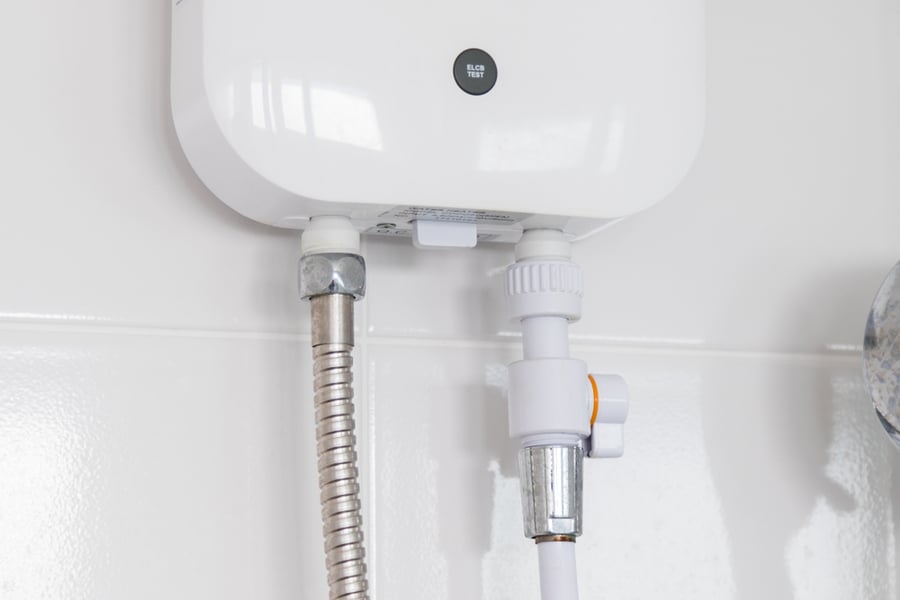
Gentle knocking sounds from your water heater are not a cause for concern, but if your water heater makes loud banging sounds, you may need to take it seriously.
A water heater makes knocking sounds when the heating element in the water heater is turned on. This causes the tank to expand slightly, which causes gentle knocking. The banging sound is typically not caused by water heater issues.
Instead, they are usually caused by faulty plumbing pipes. You should be alarmed and take immediate action to fix the banging sound.
Solution: The knocking sound is typically not a big deal, but if it is particularly loud, you may need a professional to examine it. On the other hand, the banging sound must be addressed immediately, or it will lead to bigger problems.
4. Whirring or Vibrating Sounds
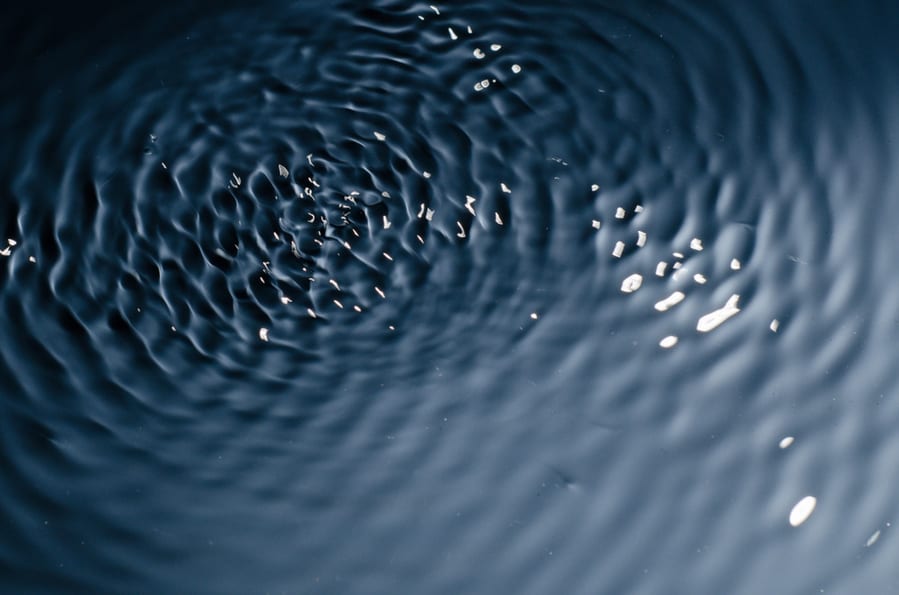
All electrical appliances make a muffled vibrating sound when they are turned on. Similarly, the whirring or vibrating sound comes from the operational mechanics of the water heater.
Therefore, you should not worry too much if your water heater makes whirring or vibrating sounds.
Solution: If the vibrating sounds irritate you, you should look for ways to reduce that noise. Use insulation pads around the water heater to muffle the sound, or look for newer models that make less sound.
If the vibration is unusually loud, have a plumber inspect the heating system and replace it if necessary.
5. Gurgling Sounds
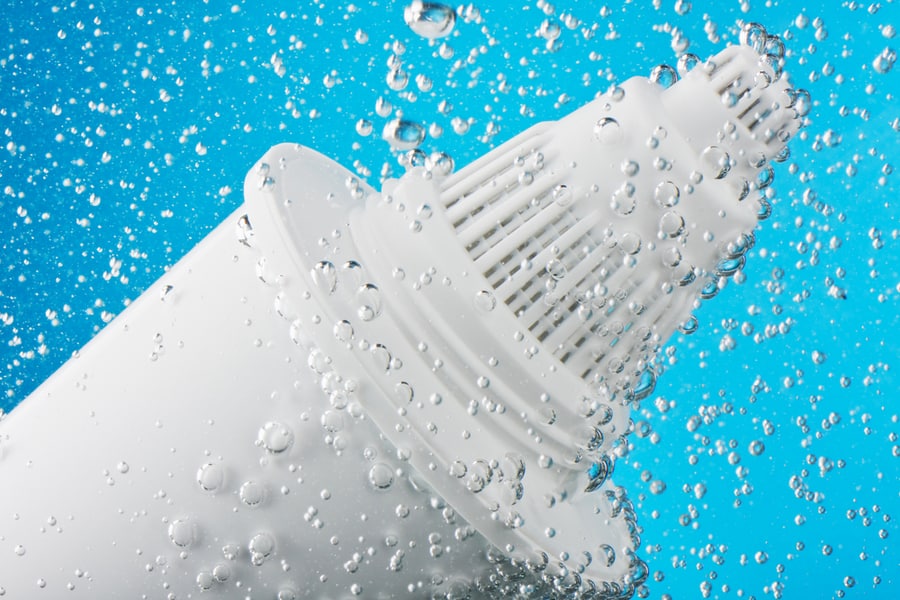
Gurgling sounds from your water heater can be caused by air in the tank. When the air gets trapped in the tank, it can create gurgling sounds, ad the water moves around it.
Solution: If you want to eliminate the gurgling sounds, try draining and flushing the tank to remove the air bubbles. If this does not solve the issue, you may need to hire a professional plumber for inspection and repairs.
6. Rumbling Sounds
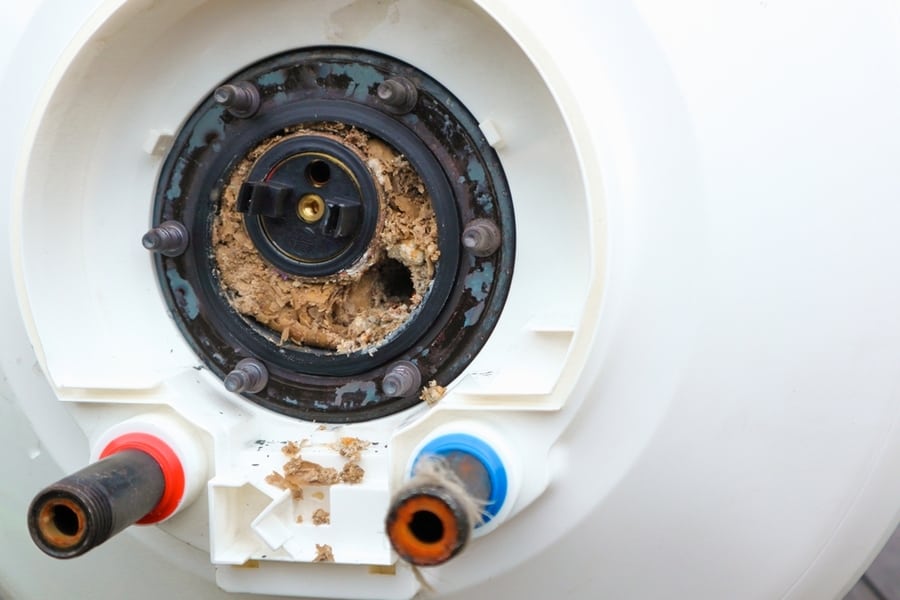
The sediment or mineral build-up sometimes makes rumbling sounds instead of popping or crackling. This happens when sand, water, and minerals, such as calcium and magnesium, flow into the water heater and settle at the bottom of the tank.
As the water is heated, the minerals expand and harden, creating a layer of sediment. This sediment can create a rumbling sound as water moves through it and can also cause damage to the tank by creating hot spots.
These hot spots can weaken the tank, leading to leaks and, eventually, tank failure.
Solution: Slight rumbling sound is not a cause for alarm. You can fix it by flushing the tank to remove the sediment buildup.
However, if the buildup is severe, you must call a plumber who can remove the sediment manually or replace the water heater (in case it starts leaking too much).
7. Screeching Sounds
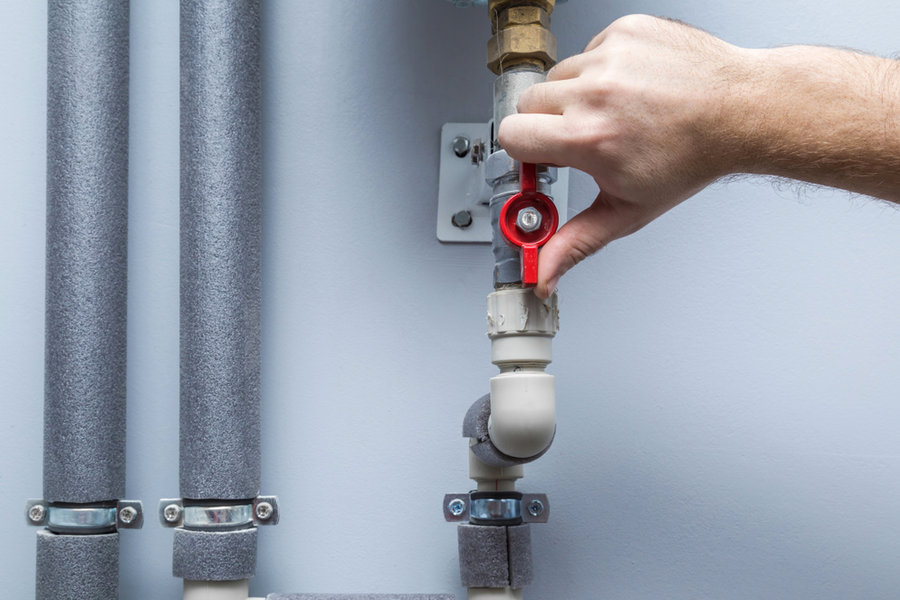
When the inward flow of cold water is hindered, you will hear an odd screeching sound. This often happens when the water entry valve is partially closed. Sometimes, it is not the valve making the screeching sounds but the heating element.
If it becomes too damaged or corroded, it can create a screeching sound as it struggles to heat the water.
Solution: If you feel like the valve is causing the noise, you can fix it by adjusting the valve. You will not need a plumber to help you with the task.
However, if the noise comes from the heating element, you may need to call a professional plumber.
8. Grinding or Clunking Sounds
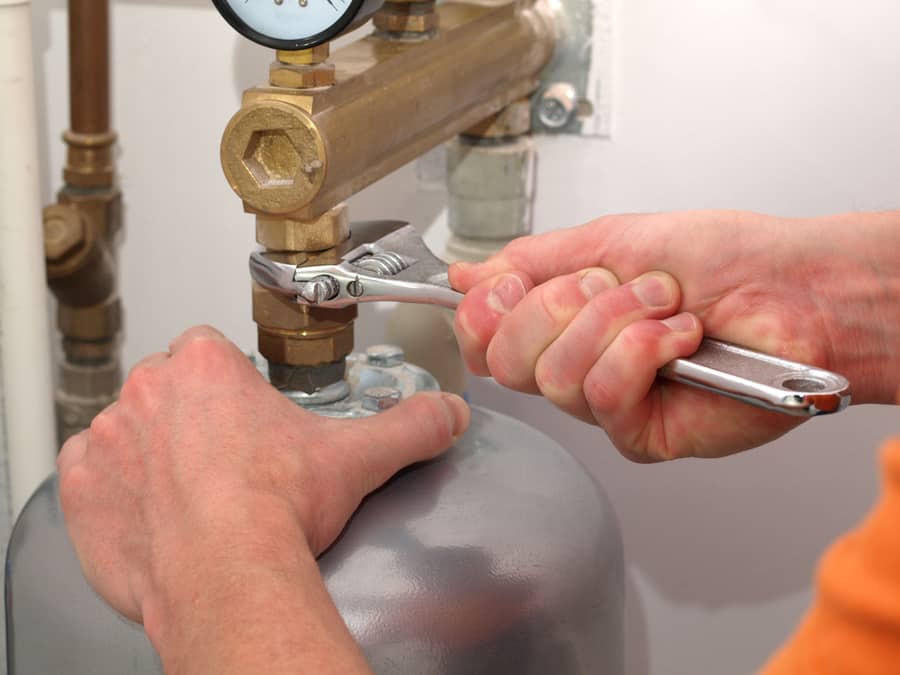
Several problems can cause grinding or clunking sounds coming from your water heater. It may be due to a malfunctioning blower motor, a faulty gas valve, or a damaged burner.
You can not fix these issues alone without prior experience with water heater repairs. All of these issues must be addressed as soon as possible.
Solution: Repairing a water heater blower motor or burner is not a DIY task. You will need to call a plumber to help you fix the issue.
9. Hums or Buzzes
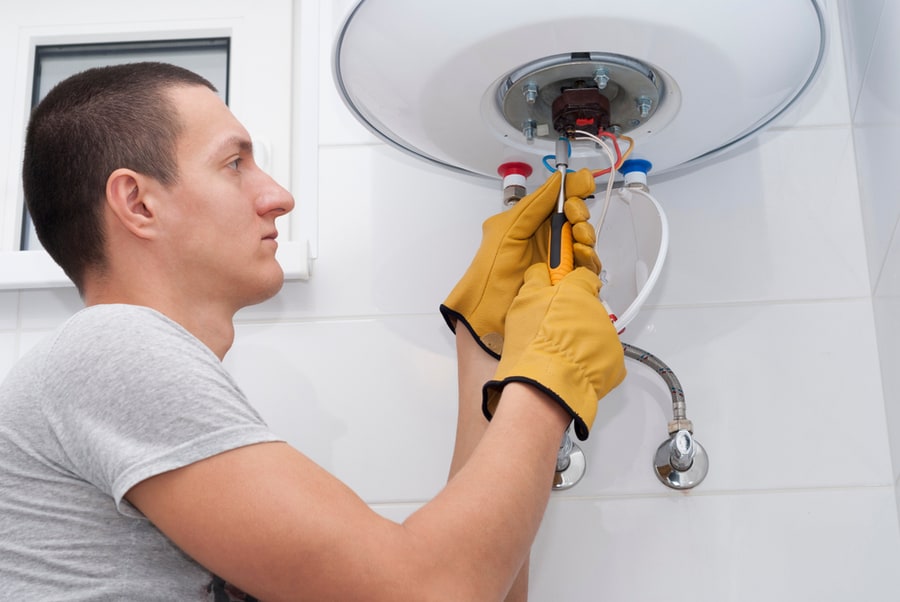
If your water heater is humming or buzzing, it may be due to a loose or damaged component, such as a fan blade or electrical connection. These sounds can also be caused by debris caught in the fan or air intake.
Solution: You can start by cleaning the fan and air intake and checking all the electrical connections. If the issue persists, you should contact a professional plumber for assistance.
10. Noise of the Heater Turning On
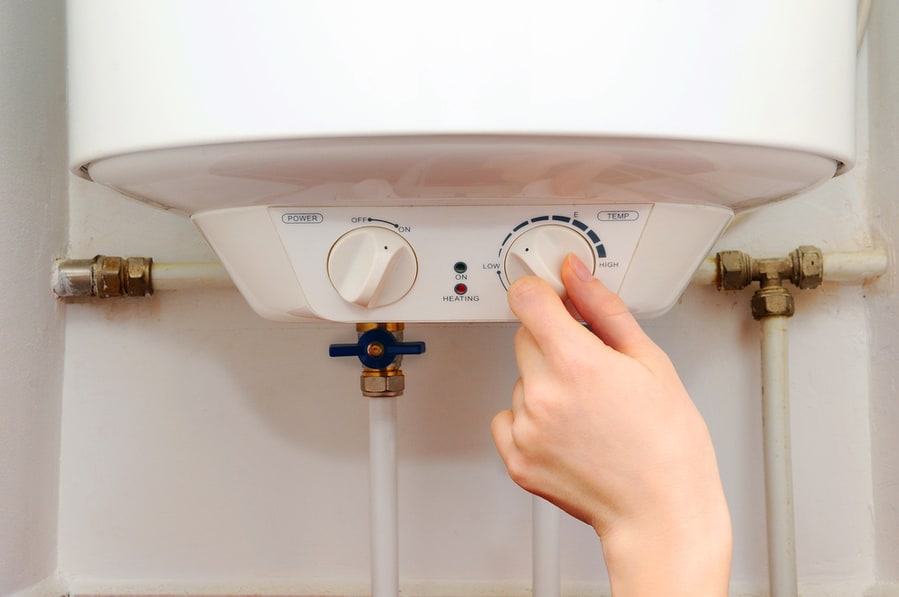
As mentioned before, every appliance makes some level of noise when it is turned on. But, if your water heater makes unusual sounds when you turn it on the water heater, it may be due to a problem with the pipes or valves in your plumbing system.
A water hammer is a common plumbing issue when water flowing through the pipes abruptly stops, causing a loud knocking noise.
Solution: To fix this, you can install a water hammer arrestor, which absorbs the shock of water flow and prevent the noise caused by the water heater.
Tips for Maintaining a Water Heater
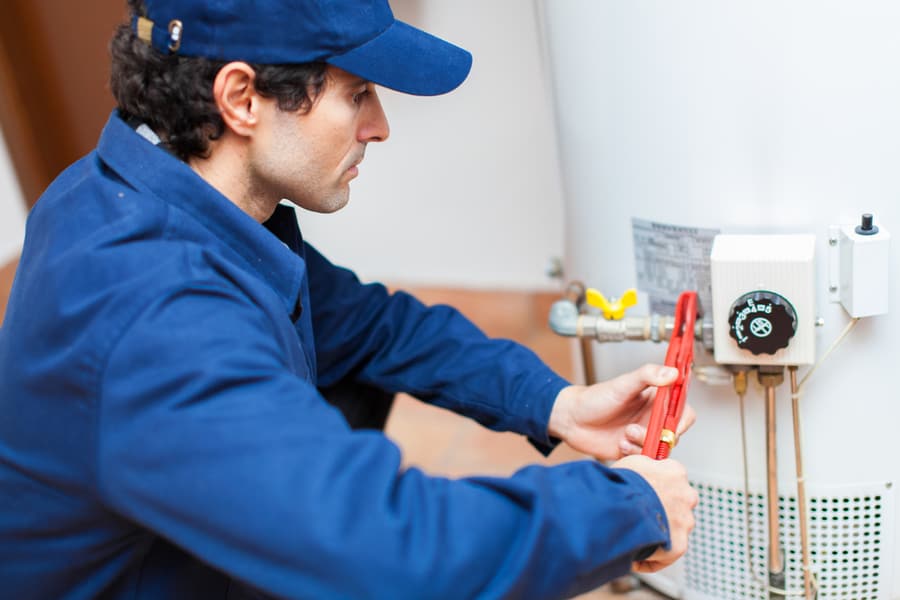
Maintaining your water heater can help ensure its efficiency and prolong its lifespan. In addition, regular maintenance will help you avoid the unwanted sounds that it makes otherwise.
- Check the Pressure Relief Valve Regularly: The pressure relief valve prevents your water heater from exploding by releasing excess pressure. It should be checked at least once a year to ensure it functions correctly.
- Drain the Tank Annually: Draining the tank once a year removes sediment buildup, which can cause the tank to overheat and become less efficient. You can drain the tank more often if necessary.
- Insulate the Pipes: Insulating the pipes connected to the water heater can help reduce heat loss and improve energy efficiency.
- Test the Temperature and Pressure: Testing the temperature and pressure of your water heater annually can ensure that it is operating safely and efficiently.
- Replace the Anode Rod: The anode rod is a component inside the tank that helps prevent rust and corrosion. It should be checked every 2-3 years and replaced if necessary.
- Keep the Area Around the Water Heater Clear: Keeping the area around your water heater clear can prevent accidents and make it easier to access for maintenance.
- Check for Leaks: Regularly checking for leaks can help prevent water damage and catch any potential problems early.
- Schedule Regular Maintenance: Scheduling regular maintenance with a professional can help ensure that your water heater is functioning at its best and can catch any potential problems before they become serious.
Conclusion
Some water heater sounds are normal, but if you notice unusual sounds coming from your water heater, it can be a sign of various issues that must be addressed.
Therefore, it is essential to understand the causes of these sounds to prevent further damage to your water heater and ensure it continues to function correctly.
If you are unsure what is causing the sound or how to fix it, contact a professional plumber for assistance. Remember that regular maintenance and flushing of your water heater can prevent many of these issues from occurring in the first place.
Frequently Asked Questions
How Long Will My Water Heater Last?
The lifespan of a water heater depends on various factors, including the type of water heater, the quality of its installation, and the frequency of maintenance.
Generally, tank-style water heaters last around 8 to 12 years, while tankless water heaters have a longer lifespan of 15 to 20 years.
However, some water heaters may last longer or shorter than these estimates depending on factors such as the hardness of the water in the area, the frequency of use, and the quality of the unit.
Regular maintenance, such as flushing the tank and replacing the anode rod, can extend the lifespan of a water heater.
How Often Should I Flush My Water Heater?
Generally, it would be best to flush your water heater at least once a year. However, if you have hard water or use your water heater frequently, you may need to flush it more often.
Signs that your water heater needs to be flushed include decreased hot water pressure, unusual noises, and discolored water. To flush your water heater, turn off the power and gas supply to the unit.
Next, turn off the water supply and connect a hose to the drain valve at the bottom of the tank. Open the valve and drain the tank until the water runs clear.
Finally, close the valve, remove the hose, and refill the tank before turning the power or gas supply back on.


